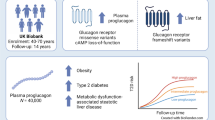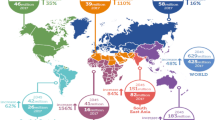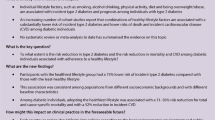Abstract
Objective
There is extensive research on the association between polymorphisms in the adiponectin gene (ADIPOQ) and type 2 diabetes (T2D). The present meta-analytic study explored the association between ADIPOQ rs2241766 polymorphisms and T2D.
Metolds
Articles were collected by searching Google Scholar, Scopus, and PubMed electronic databases until 2021. They were searched using a systematic search of original and sensitive English keywords and their equivalent keywords based on the keywords “type 2 diabetes”, “ADIPOQ”, and “rs2241766”. The article selection criteria were based on the PRISMA (Preferred Reporting Items for Systematic Reviews and Meta-Analyses) flow diagram.
Results
The results revealed that there was no bias in this study. Some studies, such as Joshaghani et al. (odds ratio [OR] = 2.18), Hussain et al. (OR = 2.12), Momin (OR = 4.45), and Amal et al. (OR = 1.84), showed an increasing effect of ADIPOQ rs266729 polymorphism on T2D with 95% CI (P ˂ 0.01), while some have shown no significant association between them.
Conclusion
The results of this meta-analytic study showed the relationship between ADIPOQ and rs2241766. Also, it was found that Rs2241766 polymorphism and allele increase the risk, and rs2241766 increases the risk of developing T2D (OR = 1.29).




Similar content being viewed by others
Data availability
The raw/processed data required to reproduce these findings cannot be shared at this time due to legal or ethical reasons.
Change history
03 February 2023
Article has been corrected
References
Cho N, et al. IDF diabetes atlas: global estimates of diabetes prevalence for 2017 and projections for 2045. Diabetes Res Clin Pract. 2018;138:271–81.
Marín-Peñalver JJ, et al. Update on the treatment of type 2 diabetes mellitus. World J Diabetes. 2016;7(17):354.
Abuhendi N, et al. Genetic polymorphisms associated with type 2 diabetes in the Arab world: a systematic review and meta-analysis. Diabetes Res Clin Pract. 2019;151:198–208.
Wdowiak A, Farahmandlou N, Tajik A, et al. The cytotoxic effect of estradiol Valerate, progesterone, and testosterone on brain glioblastoma (A172), colorectal Cancer (HT29) and human embryonic kidney (HEK293) cells and the expression levels of Bax, Bcl-2, and KAI-1/CD82 in A172 and HT29 cells. J B S. 2021;4(3):106–19.
Norouzi S, Ahmadi R, Pashapour S. The cytotoxic effects of Tolmetin on evaluation of Bax and Bcl2 genes expression level in cervical cancer cells (Hela). KAUMS J (FEYZ). 2020;24(1):31–7.
Pashapour S, Heshmati M, Mousavi Z, et al. The apoptotic effect of Methanolic extract of Galium verum on HT29 cell line. J B S. 2022a;4(4):210–20.
Pashapour S, Heshmati M, Mousavi Z, et al. The cytotoxicity of the chloroform and petroleum ether fractional extracts of Galium verum L. in HepG2 and HT29 cell lines. J Kerm Uni Medi Sci. 2020;24:e101079. https://doi.org/10.5812/jkums.101079.
Pashapour S, Heshmati M, Mousavi Z, et al. Effect of whole methanolic extract of Galium verum on AGO cell line. Toxicol Commun. 2022b;4(2):1–10. https://doi.org/10.53388/20220202010.
Pashapour S, Heshmati M, Mousavi Z, et al. The effects of methanolic extract of the aerial parts of Galium verum on HT29 and AGO cell lines. Nucleus. 2021:1–10. https://doi.org/10.1007/s13237-021-00380-1.
Ahmadi H, et al. Effects of eight weeks of aerobic exercise on leptin to adiponectin ratio and glycemic control indices in men with type 2 diabetes. Sport Physiology. 2021.
Antuna-Puente B, et al. Adipokines: the missing link between insulin resistance and obesity. Diabetes Metab. 2008;34(1):2–11.
Li P, et al. An updated meta-analysis of the association between ADIPOQ rs2241766 polymorphism and colorectal cancer. Tumor Biol. 2014;35(3):2491–6.
Pawlik A, et al. Adiponectin and leptin gene polymorphisms in women with gestational diabetes mellitus. J Assist Reprod Genet. 2017;34(4):511–6.
Nezamzadeh F, et al. Link between single nucleotide polymorphism of rs266729 and rs2241766 in the ADIPOQ gene and gestational diabetes in an Iranian population. Gene Reports. 2019:1472–5.
Tu Y, et al. Assessment of type 2 diabetes risk conferred by SNPs rs2241766 and rs1501299 in the ADIPOQ gene, a case/control study combined with meta-analyses. Mol Cell Endocrinol. 2014;396(1–2):1–9.
van den Toren SJ, et al. School absenteeism, health-related quality of life [HRQOL] and happiness among young adults aged 16–26 years. Int J Environ Res Public Health. 2019;16(18):321.
Eaton SL, et al. Total protein analysis as a reliable loading control for quantitative fluorescent Western blotting. PLoS One. 2013;8(8):e72457.
Han L, et al. Associations between single-nucleotide polymorphisms (+ 45T> G,+ 276G> T,− 11377C> G,− 11391G> A) of adiponectin gene and type 2 diabetes mellitus: a systematic review and meta-analysis. Diabetologia. 2011;54(9):2303–14.
Ling H, et al. Genome‐wide linkage and association analyses to identify genes influencing adiponectin levels: the GEMS stud. Obesity. 2009;17(4):737–44.
Heid IM, et al. Clear detection of ADIPOQ locus as the major gene for plasma adiponectin: results of genome-wide association analyses including 4659 European individuals. Atherosclerosis. 2010;208(2):12–420.
El-Shal AS, Zidan HE, Rashad NM. Adiponectin gene polymorphisms in Egyptian type 2 diabetes mellitus patients with and without diabetic nephropathy. Mol Biol Rep. 2014;41(4):2287–98.
Hussain MK, et al. Adiponectin gene polymorphisms as a predictor for development of type 2 diabetes mellitus in Iraqi population. Gene. 2018;662:118–22.
Joshaghani HR, et al. Association of adiponectin gene polymorphisms and their haplotypes with type 2 diabetes and related metabolic traits in an Iranian population. Int J Diabetes Develop Countries. 2020;40(2):216–22.
Saxena M, Srivastava N, Banerjee M. Genetic association of adiponectin gene polymorphisms (+ 45T/G and+ 10211T/G) with type 2 diabetes in north Indians. Diabetes Metab Syndr: Clin Res Rev. 2012;6(2):65–9.
Sánchez MP, et al. Association between+ 45T> G adiponectin polymorphism gene and type 2 diabetes mellitus and metabolic syndrome in a Venezuelan population. F1000Research. 2019;8(292). https://doi.org/10.12688/f1000research.16890.1.
Author information
Authors and Affiliations
Contributions
Dr. Elham Afraz, Dr. Sanaz Pashapour, Yeganeh Hamidi, and Sahar Saki conducted the research, collected the data, and performed the statistical analysis. Dr. Sanaz Pashapour collaborated in writing and reviewing the processes.
Corresponding author
Ethics declarations
Conflict of interest
The authors state that there is no conflict of interests regarding the publication of this article.
Additional information
Publisher’s note
Springer Nature remains neutral with regard to jurisdictional claims in published maps and institutional affiliations.
Rights and permissions
Springer Nature or its licensor (e.g. a society or other partner) holds exclusive rights to this article under a publishing agreement with the author(s) or other rightsholder(s); author self-archiving of the accepted manuscript version of this article is solely governed by the terms of such publishing agreement and applicable law.
About this article
Cite this article
Hamidi, Y., Saki, S., Afraz, E.S. et al. A Meta-analysis of ADIPOQ rs2241766 polymorphism association with type 2 diabetes. J Diabetes Metab Disord 21, 1895–1901 (2022). https://doi.org/10.1007/s40200-022-01086-0
Received:
Accepted:
Published:
Issue Date:
DOI: https://doi.org/10.1007/s40200-022-01086-0




